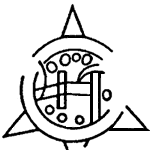

(main menu)
menu
SITEMAP
site is
ABOUT
NEW


 |
(main menu) |
menu |
|
SITEMAP |
site is ABOUT |
NEW |
 |
The International Conference on the History of Cartography [ICHC] is the only scholarly conference solely dedicated to advancing knowledge of the history of maps and mapmaking, regardless of geographical region, language, period or topic. The conference promotes free and unfettered global cooperation and collaboration among cartographic scholars from any academic discipline, curators, collectors, dealers and institutions through illustrated lectures, presentations, exhibitions, and a social programme. In order to expand awareness of issues and resources, each conference is sponsored by leading educational and cultural institutions. Conferences are held biennially and are administered by local organizers in conjunction with Imago Mundi Ltd.
The continuing series of biennial conferences started in London in the 1960s. To date, the following conferences have been held, all but four of them in Europe:
2. London (1967) 3. Brussels (1969) 4. Edinburgh (1971) 5. Warsaw (1973) 6. Greenwich (1975) 7. Washington (1977) 8. Berlin (1979) 9. Pisa, Florence, Rome (1981) 10. Dublin (1983) 11. Ottawa (1985) 12. Paris (1987) 13. Amsterdam (1989) 14. Uppsala, Stockholm (1991) 15. Chicago (1993) |
17. Lisbon (1997) 18. Athens (1999) 19. Madrid (2001) 20. Cambridge, Mass., Portland, Maine (2003) 21. Budapest (2005) 22. Bern (2007) 23. Copenhagen (2009) 24. Moscow (2011) 25. Helsinki (2013) 26. Antwerp (2015) 27. Belo Horizonte, Brazil (2017) 28. Amsterdam (2019) 29. Bucharest (2022) [delayed by Covid from 2021] 30. Lyon (2024) |
Conference papers are generally (but not necessarily) first offered for publication to Imago Mundi.
Useful introductory resources are:
2026
The 31st conference will be held in Prague, Czech Republic, 7-11 July 2026.
[To read PDF files, you need Adobe Reader (version 5 or later); click here to download the latest version of the Reader for free.]
If you think you might be interested in hosting a future conference, please read the following document very carefully. It is intended to assist potential hosts to prepare a strong case:
A further document outlines the processes of organising a conference:
It is not essential that potential organisers read through all of the second document, but it does contain much useful material that may help decision making as the various planning stages are reached.
For background information see also the websites of past conferences, which may be accessible via the Internet Archive / Wayback Machine: